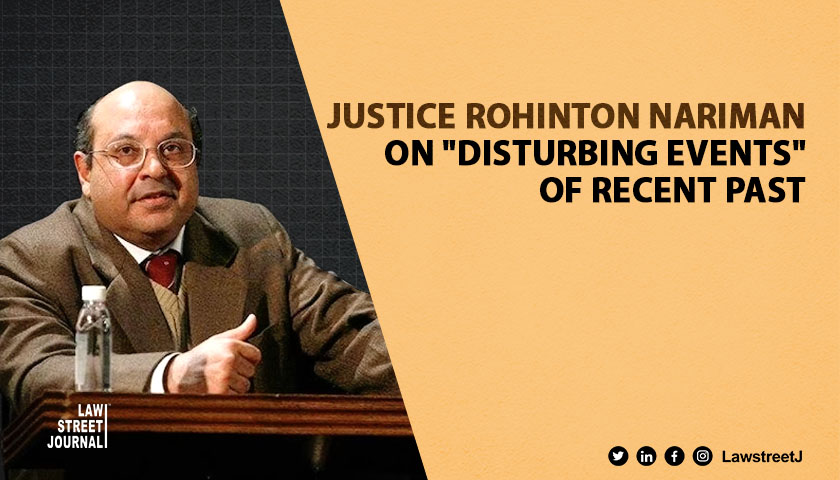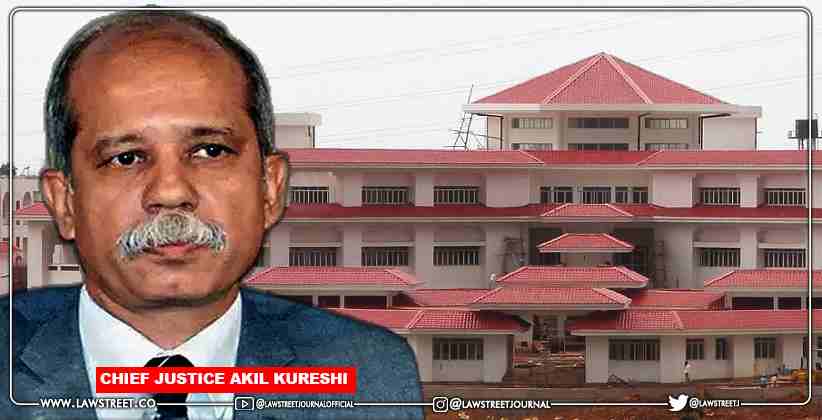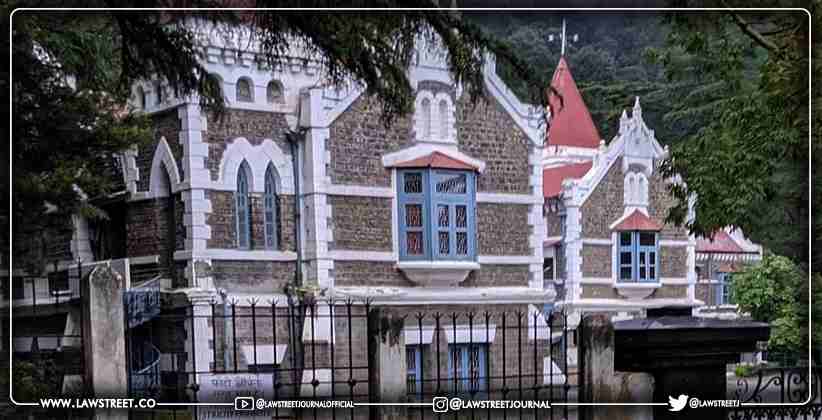Former Supreme Court judge Rohinton Nariman observed that four events in the past one year had been very disturbing and has had its biggest impact on Federalism. Out of these events, the Supreme Courts recent upholding the abrogation of Article 370 of the Constitution which had conferred special status on Jammu and Kashmir, stood out.
.the moment a state is divided into two union territories, which is what was done here, the first question is why was this done. What was the need? Because you already had Presidents rule in this state. You were administering it from the Centre, so why did you need this? You needed this because you wanted to bypass a very important article A 356 (5), Justice Nariman said.
He went on to explain that the Supreme Court's refusal to rule on the State's conversion into a Union Territory has given the Union government permission to circumvent Article 356, which stipulates that a President rule in a State cannot exceed beyond a year.
"Article 356 deals with Constitutional breakdown, when Centre takes over. But it is hedged with conditions. In no circumstances can it go beyond one year, unless there is national emergency or should the Election Commission should say that elections are not possible," Justice Nariman said.
And so, the Central government came up with the ingenious way of converting the State into a Union Territory. By not taking a decision on this issue, the Supreme Court has allowed this unconstitutional action to continue.
"So, it says 'we won't decide' means, in effect, you have decided. You have allowed this unconstitutional act to go forward for an indefinite period of time and you have skirted Article 356 (5). These are all very disturbing things," he said.
The Courts reason for not deciding on the same was rooted on an assurance by the Solicitor General Tushar Mehta that statehood will be restored to J&K soon. However, the former judge had something to say on this.
"The Solicitor General does not have any authority to bind the successor government. We are going to have a successor government from May next year. Second, and more importantly, he (Solicitor General) has no authority to bind the legislature. And this is going to be a legislative act," he said.
Drawing from an experience on his own while hearing the Shreya Singhal case (which invalidated Section 66A of the Information and Technology Act), Justice Nariman narrated how the same SG Mehta had assured the Court that Section 66A would not be misused by the government.
"I remember that I had said in Shreya Singhal case, one of my early judgments, when a similar assurance was given to me by the Solicitor General, 'that governments may come and go and the Solicitor's assurance may not bind a future government.
Justice Nariman was speaking on The Constitution of India: Checks and Balances.
Written constitutions such as ours are meant to diffuse power and are meant to see that there is no power that is concentrated in the hands of one authority or individual to the detriment of others, the judge explained which adding that Article 1 itself is an important declaration and gives us an idea of the federal principle, Part III is the conscience of the Constitution rights to be exercised against the state and Part IV talks of DPSP, it is important to not forget the weak man, weak in whichever sense.
The judge then pointed to the three other major incidents in the recent past which shook the country in the country.
What has happened in this country in the recent past is most disturbing. Four things that happened this year the Court said describing the BBC income tax raids, law on appointment of Election Commissioners and actions of the Kerala Governor.
BBC documentary, in fact there were two, were talking about our present Prime Minister, the then Chief Minister of Gujarat. They were promptly banned. The BBC was harassed by having tax raids. This was the first, difficult questionable incident that took place earlier this year," the judge said.
On the second issue, Justice Nariman it predominantly revolved on the Supreme Courts decision of how an Election Commissioner should be appointed.
Something every crucial. If the Election Commissioner is partisan, then there is no free and fair election. The Supreme Court had stated in an interim order until Parliament decides, the Election Commissioners will be appointed by the President of India on the advice of a committee consisting of the Prime Minister, and leader of Opposition in the Lok Sabha (or leader of largest opposition party), and the Chief Justice of India.
Most unfortunately, a Bill was moved in the Rajya Sabha which, it will be an Act in no time, in which the Chief Justice is substituted by a Minister appointed by the Prime Minister. This is the second most disturbing feature because, if you are going to get Chief Election Commissioner and other Election Commissioners elected in this fashion, free and fair elections are going to become a chimera.
He continued by saying that it seriously undermines the independence of the Election Commission's operations and that it ought to be overturned as an arbitrary piece of law.
The third incident is when the Governor of a traditionally minority government, that is Kerala, is sitting over bills for a period up to 23 months.
There were 8 such Bills, one bill was assented to, 7 bills were referred to the President, the judge highlighted.
This again is a very disturbing feature, because, if theres a wholesale reference to the President, then the legislative activity of the State comes to a standstill. Because, unlike a governor sending back a bill (to the State legislature), once it lands at the Centre's door and Centre says no, that's the death of the bill"











B K Mehta Dec 16, 2023
Let Mr Nariman realise and so also the person who shared his views , these views are of an ordinary citizen in the Street Donot try to validate the by prefixing Former SC judge He is too is bound to follow SC judgments Disappointed this is a curse anti nationals would have to be beat with